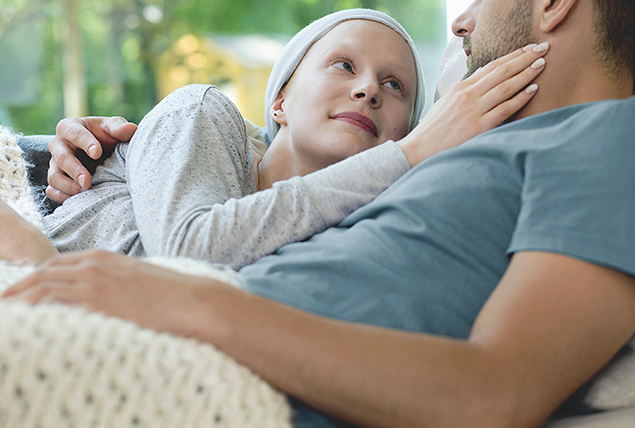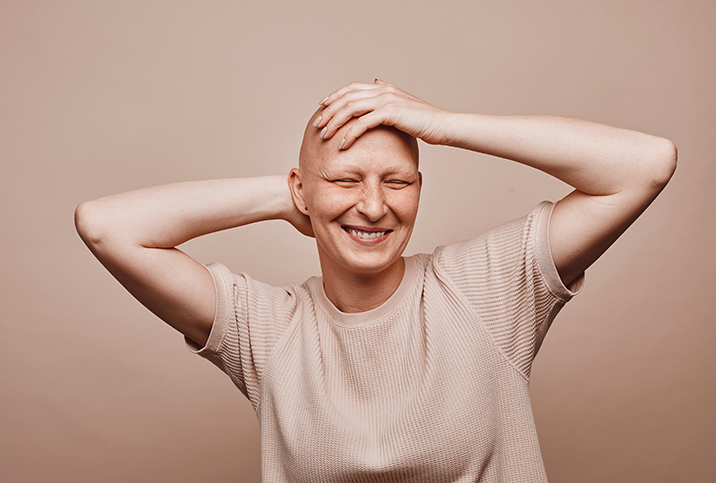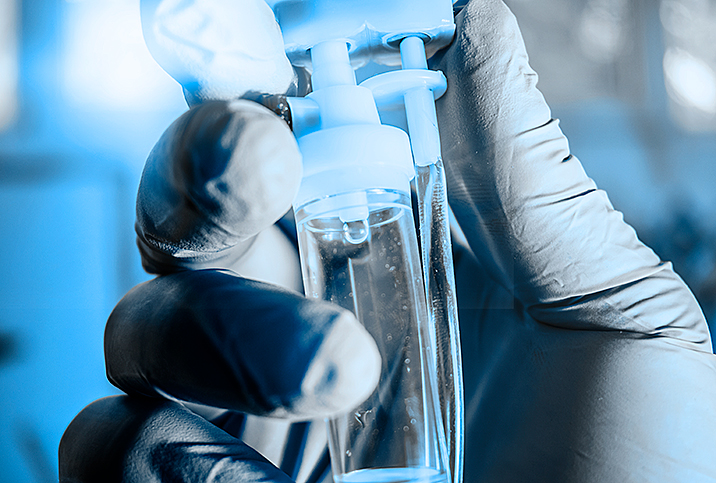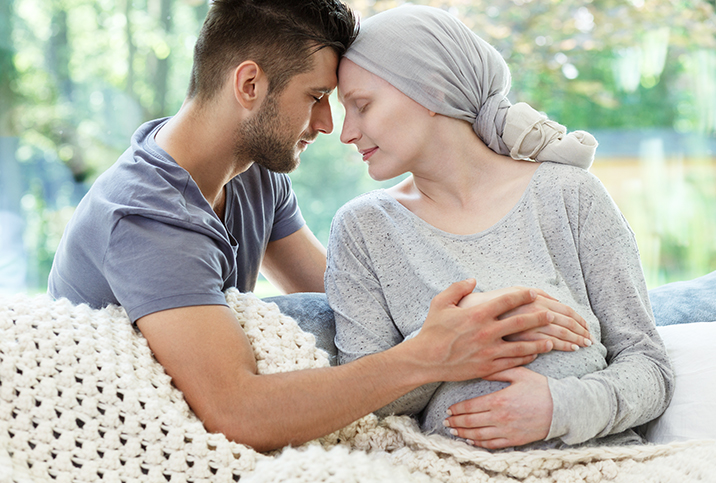Can I Still Have Sex While I'm Being Treated for Cancer?

Cancer treatment can be a long journey that's going to be difficult both physically and mentally. While the objective is obviously to destroy cancer cells and save your life, you're going to have to live with a variety of side effects.
One area you may not have considered is how those side effects may impact your sexual health.
How can you navigate sex and oncology appointments?
Sexual dysfunction affects 66 percent of women who have cancer, according to a systematic review published in the International Journal of Reproductive BioMedicine in January 2022.
While sexual dysfunction is prevalent among cancer patients, it's difficult to pinpoint a specific factor that affects sexual health, said Shari Goldfarb, M.D., a breast oncologist at Memorial Sloan Kettering Cancer Center in New York City.
Sex and cancer treatments aren't always easy to navigate, both for healthcare providers and patients, she added. Sexual function is a frequent topic of discussion at her oncology practice, with women experiencing hot flashes, night sweats, vaginal dryness or pain. Patients have also expressed concern about a lack of information about the topic.
Perhaps because of the scarcity of information, 3 in 4 women with breast cancer reported they had concerns about their sexual health, according to a study published in 2022. The study also suggested most oncologists are not trained to recognize that women may be at risk of developing sexual disorders.
"We know this is important for our patients," Goldfarb said.
Focusing on how treatments are affecting patients' sexual function, Goldfarb noted her facility has added a sexual health questionnaire to the routine forms patients fill out during an appointment.
They are able to address concerns such as decreased libido, pain with intercourse and vaginal dryness from the very start of their treatment.
If healthcare providers aren't comfortable addressing concerns about sex during visits, she advises her patients to get a referral to the Memorial Sloan Kettering sexual wellness program.
Other resources include the list of sexual health providers who can help with issues of sexual dysfunction. You can find that list at the International Society for the Study of Women's Sexual Health (ISSWSH).
How does chemotherapy affect sex?
Chemotherapy affects sexual health because it causes symptoms that make it difficult to enjoy sexual activity. The treatment can advance women into menopause, so they experience hot flashes, night sweats, vaginal dryness and pain with intercourse.
The average age of the onset of menopause is between 45 and 55 years old, a time when estrogen levels gradually decrease. The menopause process normally takes about seven years, but when chemotherapy or other cancer medications are introduced to a woman's body, there can be sudden and intense symptoms.
"Instead of a slow decline in estrogen, it's sort of a sudden estrogen deprivation," Goldfarb said.
This sudden deprivation can wreak havoc on the body, causing issues with sexual function. Certain medications prescribed to protect future fertility—Lupron (leuprorelin) is one—can also be a common concern while going through chemotherapy.
These medications are given just prior to, or along with the initial chemotherapy dose, Goldfarb said. This shuts down the ovaries to protect eggs from the effects of chemotherapy, but it can cause women to experience menopause in a matter of weeks.
How do other cancer treatments affect sexual health?
Other forms of cancer treatments such as targeted agents and endocrine therapy can potentially impact sexual function, physically and mentally, Goldfarb said. Even patients who have already gone through menopause can experience a sort of "second menopause" if they're on certain endocrine therapies, dropping estrogen levels further.
Endocrine therapies—this includes tamoxifen and aromatase inhibitors—are not known to cause menopause, but they can cause decreased sex drive, according to an article published in May 2015 by Goldfarb.
She noted that radiation therapy can negatively impact sexual health, depending on where the radiation is targeted.
Radiation for breast cancer can cause decreased nipple sensation due to burns on the skin. For cancers such as endometrial or ovarian, radiation therapy to the pelvic area could cause vaginal stenosis, a condition where the vagina shortens and narrows, leading to painful intercourse.
What are the ways you can manage your sexual health during cancer?
Goldfarb and Jenn Kennedy, Ph.D., a sex and couples therapist at Riviera Therapy in Santa Barbara, California, have four important pieces of advice for women undergoing treatment for cancer.
1. Recognize body image concerns
"Body image is a loud, internal critic," said Kennedy, adding that working through and reducing negative thoughts that get in the way of sexual desire, such as hair loss, is common.
She suggested patients find support groups or group therapy sessions because they can be empowering and will help to normalize their feelings.
2. Address side effects
It can be helpful to use plenty of lubrication or vaginal moisturizers to combat vaginal dryness. Goldfarb suggested patients explore other ways to experience pleasure—light touch over their body, deep kissing, using a vibrator—which can be a good alternative to insertive sex.
3. Communicate with your partner
Partners of someone being treated for cancer may also feel scared, exhausted and often helpless, Kennedy explained. Coming together as a couple, perhaps in counseling, can be helpful.
Communication—both verbal and physical—is always important, but especially so when someone is dealing with cancer.
4. Speak up during appointments
Mention any changes you're noticing and ask your care team about treatment options for concerns with sexual health. You may have to bring up the topic more than once, Kennedy said.
"Signaling that this matters as part of your quality of life may help providers be more aware and considerate about your sexual needs," she said. "Don't be afraid to ask for a referral if your provider doesn't know how to help."
Improving sexual function in women with cancer is a growing area of research, according to Goldfarb.
"We're starting to do more research with cancer patients in general because [sexual health] is a huge issue. And understudied," she said. "We're hoping to change that in the coming weeks, months and years."


















